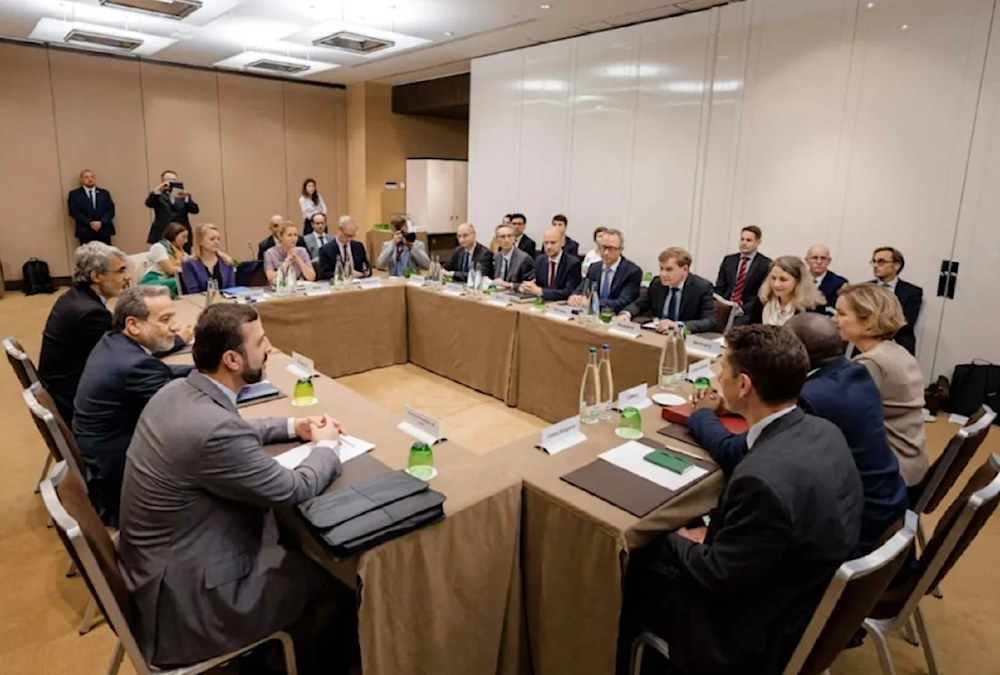Iran agrees to nuclear talks with Europe in Istanbul Friday
The discussions will center on Iran’s nuclear program and are set to proceed independently of the ongoing indirect talks between Iran and the United States.
-

From a meeting between Iranian Foreign Minister Abbas Aragchi and the foreign ministers of the European Troika on June 20, 2025 (AFP)
Iranian state television announced Monday evening that Tehran has agreed to a new round of negotiations with the three European signatories of the nuclear deal, France, Britain, and Germany, in response to a European request.
The talks are scheduled to take place Friday in Istanbul at the level of assistant foreign ministers. Iran will be represented by Deputy Foreign Minister for Political Affairs Majid Takht-e Ravanchi and Deputy Foreign Minister for Legal and International Affairs Kazem Gharibabadi.
The discussions will center on Iran’s nuclear program and are set to proceed independently of the ongoing indirect talks between Iran and the United States.
Al Mayadeen’s correspondent in Tehran confirmed that Iran agreed to the meeting following a formal request from the European Troika.
On Sunday, the European Troika released a joint statement urging Tehran to engage in fresh negotiations aimed at reaching a comprehensive agreement that addresses what they described as “all concerns related to the Iranian nuclear program.” They also expressed their willingness to help create the conditions necessary to achieve that goal.
Iran nuclear negotiations have remained in limbo in recent months, but this renewed engagement signals a possible step forward in diplomatic efforts between Tehran and Brussels.
Iran urges Europe to abandon failed pressure tactics
On Friday, Iranian Foreign Minister Abbas Araghchi firmly rejected Western narratives surrounding the collapse of nuclear negotiations, placing full responsibility on the United States for both the unraveling of the 2015 nuclear agreement and the recent failure to revive diplomacy.
In a statement shared on X, Araghchi said that he held a joint teleconference with the foreign ministers of the E3, alongside the European Union’s High Representative. He emphasized that Iran has remained committed to dialogue, while it is Washington that has consistently undermined diplomatic progress.
"It was the US that withdrew from a two-year negotiated deal, coordinated by the EU in 2015, not Iran," Araghchi stated, adding, "And it was the US that left the negotiation table in June this year and chose a military option instead."
On a related note, Raouf Sheibani, the Iranian foreign minister’s special envoy for West Asia, earlier this week firmly rejected Western pressure to accept a revised nuclear deal.
In an interview for Al Mayadeen, he stated, "Iran will not back down in the face of any Western pressure or threats to activate the snapback mechanism."
Despite acknowledging that diplomacy remains the preferred path, Sheibani stressed that Tehran is "prepared for all scenarios" should negotiations collapse.
Citing the recent 12-day war, Sheibani criticized the West's reliance on coercion, saying, "Western military pressure during the 12-day war yielded no results, and any other form of pressure will not force Iran to retreat."

 3 Min Read
3 Min Read








